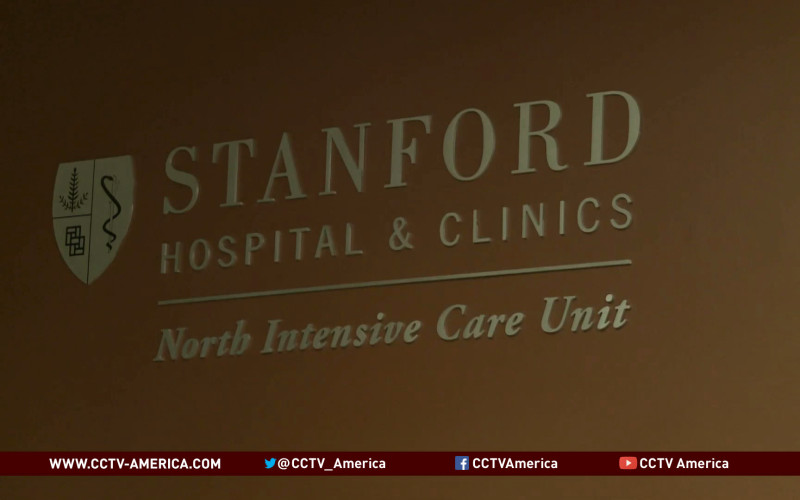
US Top Hospitals See Influx of Chinese Patients (CCTV America-Mark Niu)

“Americans can accept traditional Chinese medicine because it works, especially for treatments of chronic pains. Then, they found the efficacy of traditional Chinese medicine in treating insomnia and anxiety disorders,” Dr. Lin said. “It opens the market for traditional Chinese medicine.”
Richard Spivack, a patient who came to Dr. Lin in search of relief after being treated for cancer said radiation drugs left his hands and feet feeling numb. “I decided to reduce the amount of pills I was taking. I made a few phone calls and they recommended acupuncture. I tried several times and it worked,” Spivack said. “Now, I understand a little bit about the concept of ‘Qi’. I understand that Dr. Lin relies on pulse and tongue diagnosis because the body is a whole unit. Although I come to treat my feet, the doctor will use acupuncture on my head which will improve blood circulation of the entire body.”
Dr. Lin graduated from the Shanghai University School of Traditional Chinese Medicine but the U.S. still requires doctors like Lin to complete special courses and an exam before they’re able to practice in 43 of the 50 U.S. states that allow the practice of Chinese medicine.
According to the most recent data by the National Certification Commission for Acupuncture and Oriental Medicine, there are more than 27,000 licensed practitioners of acupuncture in the U.S.
U.S.-China Center for Medical Exchange and Hopson Medical Education and Development System will host Sino-U.S. Precision Medicine International Training Program. Executive director Dr. Wei Wu at U.S.-China Center for Medical Exchange and CEO Dr. Xin Ma at Hopson Medical Education and Development System collaborate on this special projects. Dr. Wu is in charge of all logistics of the program and Dr. Ma is in charge of academic design. The inaugural class will consist of 30 members of hospital presidents from China. They will from thirteen cities and eight different provinces in China. It is the first program of its kind. Dr. Wu and Dr. Ma had multiple successful experiences in training programs. This program hopefully will set a foundation for attracting more Chinese hospital presidents to Houston.
Duke Chairman Juyu Chen and three other professors from Shenyang Xiehe Group, China visited MD Anderson Cancer Center at the Texas Medical Center on September 5th and 6th, 2016. During the visit they met with Dr. Dongfeng Tan from MD Anderson Cancer Center and discussed in depth the ascites derived from cancers such as liver cancer, ovarian cancer, and other cancers. U.S.-China Center for Medical Exchange organized the visit. Project manager Dr. Frieda Li headed the project and accompanied the group from the beginning to the end. Chairman Chen and the visitors were pleased with the visit and said it was exceeded their expectation.
During the visit, Dr. Xiaoling Zhang from Xiehe Group presented their experience with and therapeutic efficacy of superantigen Stahylococcal enterotoxin C (SEC) on ascites. With an efficacy of 93% for the elimination of ascites without recurrence, Dr. Tan was impressed with the results. The representatives from both organizations agreed to support the establishment of an Ascites Therapeutic Center for confirmation of SEC’s effects in patients from both China and the US. The China-US Exchange Center and Shenyang Xiehe Group also considered the potential cooperation on and marketing of other products in the US.
Deputy Director General Dr. Junhua Zhang and Chief of Operation Ms. Lei Gao at Health Human Resources Development Center (formerly under the Department of Public Health) headed a group of distinguished guests to visit Texas Medical Center. Ha Erbin First Hospitals administrators Dr. Dongfeng Shi, Dr. Yu Guan and Dr. Hongda Wu were among the visitors. It was their first time to visit Houston, Texas. Texas Medical Center left a great impression on them. The organization that Dr. Zhang and Ms. Gao work for is in charge of hospital administrator’ training in China. They hope to bring more people to visit Texas Medical Center.